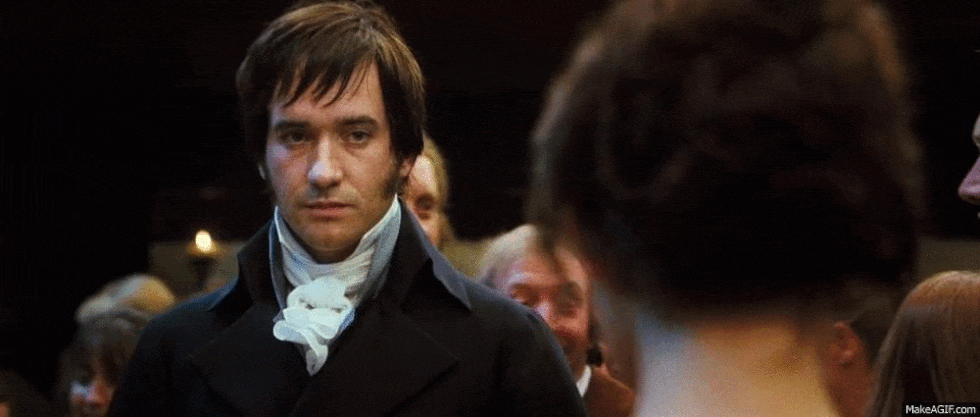Beyond the focus on marriage and social standing, Pride and Prejudice explores the concept of self-deception. How do Mr. Darcy’s initial prideful behavior and Elizabeth Bennet’s misjudgments about him exemplify self-deception? How does their evolving understanding of each other challenge ...
While it is not explicitly translated in the pages of Jane Austen's 1813 novel "Pride and Prejudice" that Mr. Fitzwilliam Darcy Esquire suffered from social anxiety, there are certainly many moments throughout the beloved tale that suggest he may have experienced anxiety, especially when it comes toRead more
While it is not explicitly translated in the pages of Jane Austen’s 1813 novel “Pride and Prejudice” that Mr. Fitzwilliam Darcy Esquire suffered from social anxiety, there are certainly many moments throughout the beloved tale that suggest he may have experienced anxiety, especially when it comes to major social situations.
From the very first moment when Mr. Darcy met Elizabeth Bennet, his aloof and introverted demeanor makes the second eldest of five Bennet sisters form a negative impression. Hence, his apparent discomfort in large gatherings, especially while conversing with strangers, could be interpreted as signs of social anxiety.
In the novel, Mr. Darcy even quoted his tendency to avoid small talk and struggle with expressing his true emotions by saying, “I certainly do not have the talent which some people possess of conversing easily with those I have never seen before,” which can also point to the wealthy English aristocrat as having social anxiety.
Initially, the readers might have considered Mr. Darcy as a proud man who doesn’t wear his heart on his sleeve. But as the story progresses, with his kind gestures, he turns out to be a fine gentleman who likes to tell his honest thoughts without twisting his words, despite his reserved behavior, which also got judged by Elizabeth.
Ultimately, it is up for readers to decide whether Mr. Darcy’s perceived coldness stems from social anxiety, as his personality has played a crucial part in contributing towards his complex characterization, which has inspired many derivatives in modern literature, including films and TV adaptations of the classic novel.
See less

"Pride and Prejudice," Austen's biting social critique, highlights the follies of vanity through its lead characters, Mr. Darcy and Elizabeth Bennet. At the beginning of the novel, both characters hold themselves in high esteem and believe themselves to be better than their counterparts. Lizzy is prRead more
“Pride and Prejudice,” Austen’s biting social critique, highlights the follies of vanity through its lead characters, Mr. Darcy and Elizabeth Bennet. At the beginning of the novel, both characters hold themselves in high esteem and believe themselves to be better than their counterparts. Lizzy is proud of her wit and judgment and considers herself above the futile customs of the gentry class. Darcy deems people in society to be one-dimensional, selfish beings functioning solely to climb the hierarchy of class.
As they interact with each other, their existing ideas about themselves and society start being challenged. Elizabeth reconsiders her judgment of Darcy as rude and aloof as she learns more about his shy demeanor and careful character. Darcy is forced to look beyond his idea of a proper, “accomplished” woman as he encounters Elizabeth’s free-spiritedness and original wit. Their characters act as mirrors to each other, reflecting their own self-deception.
In the end, their self-reflection and assessment lead them to overcome their own pride and prejudices, resulting in the ever-beloved romantic union.
See less